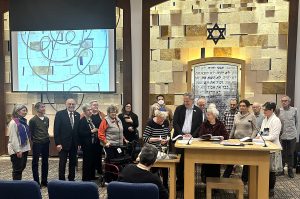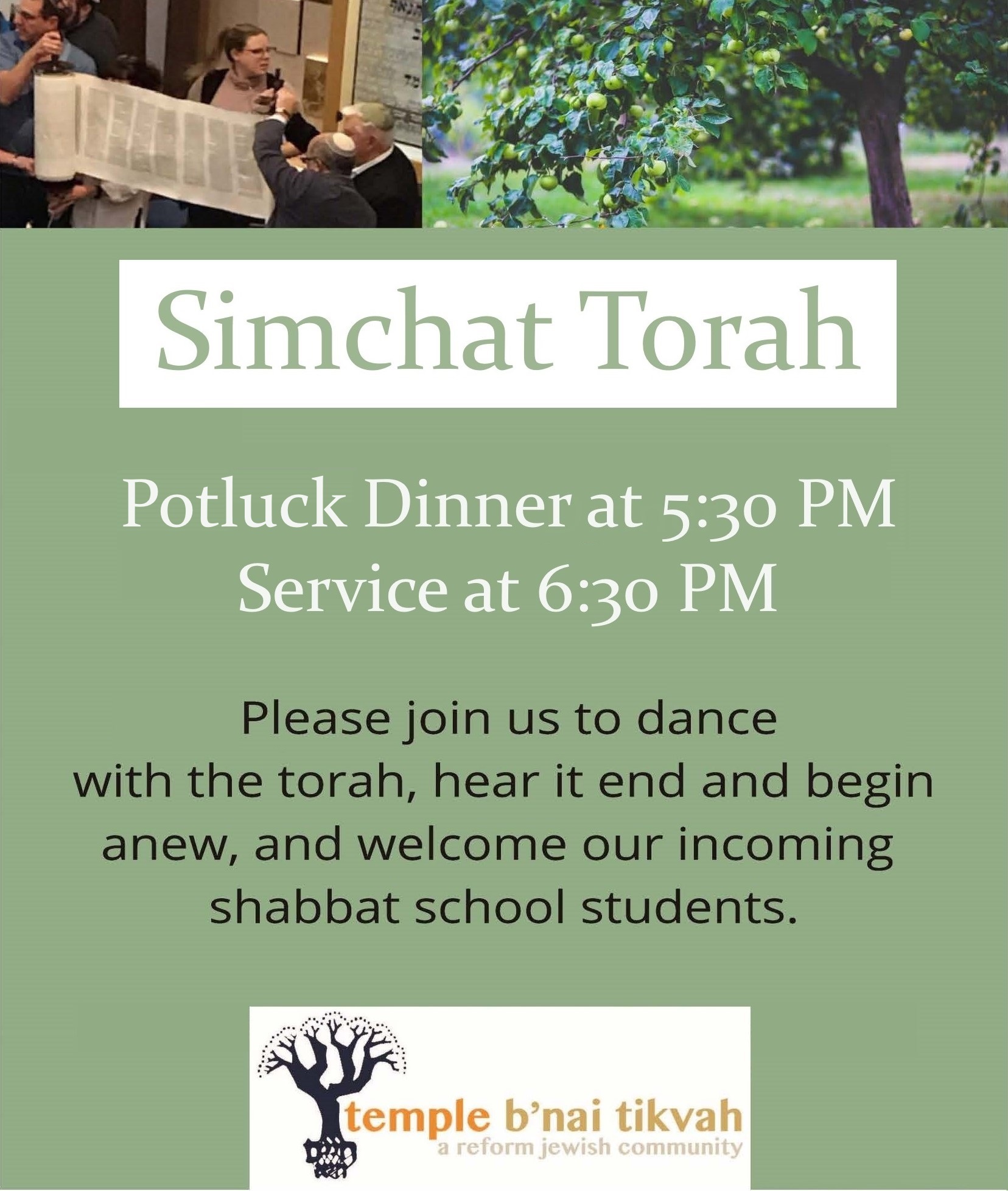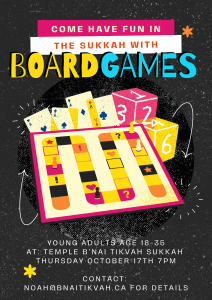Temple B’nai Tikvah joins Jews throughout the world in wishing Israel a joyous 77th birthday. We send Israel and its citizens our wishes for peace, safety and happiness as it celebrates the anniversary of its birth. May the Maker of peace in the heavens make peace for Israel. May nation not lift up sword against nation, nor learn war anymore. Chag Sameach!
Premier Danielle Smith issued the following statement to commemorate Yom HaShoah:
“On Yom HaShoah, a day of remembrance and introspection, we vow to never forget the victims of the Holocaust. More than six million Jewish men, women and children were imprisoned, tortured and murdered by the Nazis and their collaborators.”
“In the years following the Second World War, the world committed to ‘Never Again’ stand by without fighting against such heinous atrocities. Never again would evil be permitted to go unchecked, and never again would the Jewish people be left alone to struggle against antisemitism.
“There is no room for hatred in Alberta and Alberta’s government will always condemn terrorism and hate. Together, we will stand against antisemitism, stand with the Jewish people, and stand for the province we love. I invite all Albertans to act in solidarity with the Jewish community and commemorate Yom HaShoah.
“Never Again.”
Source: https://www.alberta.ca/release.cfm?xID=93184DD725D7E-C841-519B-3CFAAFFD41CEA19B
 Temple B’nai Tikvah celebrated a very important group of donors at services on Shabbat Friday, February 28, 2025. It was in honour of contributors to our Life & Legacy program. They are members who have named TBT in their insurance policies and/or wills. Rabbi Mark Glickman invited the group to say a blessing over the Shabbat candles. During his sermon, he quoted the Torah. “The portion begins with God telling Moses to have the Israelites ‘Bring me a gift…from everyone whose heart so moves them.’ (Exodus 25:2) Notably, Moses doesn’t tell them that the gift is for him – Moses. Instead, the gift is for God.”
Temple B’nai Tikvah celebrated a very important group of donors at services on Shabbat Friday, February 28, 2025. It was in honour of contributors to our Life & Legacy program. They are members who have named TBT in their insurance policies and/or wills. Rabbi Mark Glickman invited the group to say a blessing over the Shabbat candles. During his sermon, he quoted the Torah. “The portion begins with God telling Moses to have the Israelites ‘Bring me a gift…from everyone whose heart so moves them.’ (Exodus 25:2) Notably, Moses doesn’t tell them that the gift is for him – Moses. Instead, the gift is for God.”
Rabbi Glickman went on to say, “Life & Legacy is important because the program allows us to give and to keep giving in perpetuity. By participating in Life & Legacy, we can give gifts to God over and over again, thus creating opportunities for more people to have deeply meaningful Jewish experiences that so many of us experience at B’nai Tikvah. To have them long into the future.”
During the Kol Nidre Service on October 11, 2024
By Rebecca Silverberg, Temple President
Good evening!
It is truly wonderful to be able to be with all of you here today.
As I think all of you know, this is my first Kol Nidre speech as this Congregation’s President.
And while, in years past, your president would stand before you on this most holy of days and celebrate all of the wonderful things that Temple has done over the past year, and encourage our members to donate time and money to the community – some of which I will do later in my remarks – but it strikes me that it would be disingenuous for me to stand here without acknowledging the October 7 tragedy and the horror and pain that many of us, if not all of us, have felt or witnessed over the last year.
This is our first Yom Kippur together since that date.
A year has gone by since Israel went through one of the most terrible calamities in its history, the Jewish people’s worst disaster since the Holocaust. A year has passed, and 101 hostages are still held by Hamas. A year has passed, and almost every day we hear of more people being killed or wounded.
And although the Days of Awe are generally a time of celebration, this entire year has felt like one lacking in celebration in its purest form. October 7 created a deeper experience of our otherness than most of us have experienced in our lifetimes, and the aftermath of that day has rippled into a sense of abandonment by many in the global community.
I am not so naïve as to think that I will be able to, in my words this evening, describe the collective experience of our community and its members following October 7.
But in this time of deep prayer and reflection, I thought what I might do is tell you briefly about my October 7 experience, or my truth, which is a story that I’ve not shared with anyone in this room before.
And then what I want to do is share the two lessons that I’ve learned from this past year.
The first lesson I learned was that I need to ask better questions about every person’s unique October 7 experience – because when the starting point is – how has October 7 impacted you – we find vulnerability, openness and a wealth of shared experiences.
The second lesson I learned was that this group of people in this room, and our larger Jewish community, has been so important to my healing and recovery from October 7.
Now – contextually, important to my October 7 story is that I lived in Israel while I was pursuing my Master’s degree, ironically it seems now, in conflict resolution. I was part of an international, Israeli and Palestinian group of students attending Tel Aviv University. I had the opportunity to travel all over Israel, within the West Bank, and within the larger Middle East. I have visited many of the places in Israel that have been most impacted by October 7 – and – for a time, I considered Israel my home, I have also considered it a home that I will return to because I continue to have strong connections to the people of Israel, an extended family so to speak.
Coming full circle now to my experience with October 7.
I recall vividly the sheer happiness I felt at the end of Simchat Torah services last year. I had not been to a Simchah Torah service in probably decades but felt compelled to be here last year (and not just because I had to deliver announcements). I left feeling deeply connected to this community, to the Torah, and to my own Judaism. I went to bed happy, hopeful, and contented.
Then I woke up on October 7. And it started as a normal day. My friends were throwing me a belated birthday party that night. I took the dog for a walk and I went to the grocery store. I was blissfully naïve, still revelling in the joy of the previous night’s services. I was sitting in the parking lot of that grocery store when I received a text from my husband that said – “Something is happening in Israel.” And I sat in that parking lot for the better part of an hour reading the news and watching video footage of the October 7 attacks.
Although I was numb for a period of time, I swung from an extreme emotional high to probably the deepest depression I’ve ever felt, and still feel somewhat to this day, in less than 24 hours. I spent days in bed torturing myself on social media and by watching the news and texting my friends in Israel to make sure they were okay.
If October 7 wasn’t bad enough, in the days following, we started to see groups of people celebrating the October 7 attacks, which to me and many in this room, was unbelievable. It felt like the ultimate betrayal. And then emerged widespread antisemitism in the West, to a degree that I’ve never experienced before. And everything, in that moment, felt so impossible and ugly.
I lost friends those weeks following October 7. Not only did I lose friends in Israel on October 7, but I lost friends here in Calgary. Friends who didn’t understand my pain, who applauded the terror attacks, who stood on the “wrong side of the street” so to speak. And eventually, as grief goes, my deep sadness turned to rage.
I was angry that I had to go to work and act normal because I didn’t feel normal. I was angry at the people in my life who hadn’t acknowledged October 7 or the impact October 7 could have on me or the community. I was angry at the politicians in this country for not doing enough to support Israel and to support Jewish communities here. I was angry at Hamas. And yes, I was even angry at this Temple for a period of time – for not doing the things I thought might be right or reasonable in these circumstances.
I felt isolated in my trauma and scared, and I withdrew pretty completely for several long months.
Now I’m going to get to the part where I started healing, which is a much more positive part of my story because it very much speaks to the healing and transformative power of our community.
But in preparing these remarks, and in coming to the first lesson I’ve learned from this experience, I reflected on the people who stood by and with me and with us over the last year. There have been many, but I want to highlight one person.
I have a friend. A best friend. She is not Jewish and I’ve only known her a few short years. She has been present with me every day since October 7. She cried with me, she watched hours of Tik Toks about October 7; she stood with me across from City Hall waving an Israeli flag when that is what I felt I needed to; and she attended several Federation events with me. She has celebrated Shabbats, Hannukah, Purim, and Passover with me.
And over the last year, I’ve also watched her teach her two young children about the Middle East conflict, October 7, and antisemitism, so that they understood why they were seeing what they were seeing, and why some of what they were seeing was deeply wrong. More positively she taught them about the wonderful parts of Judaism. Her 12-year-old even made a point this year of wishing me a happy new year – which is kind of a big thing for a kid who seems to be singularly focused on drums and music.
For the first time since October 7, and in the preparation of these remarks, I finally thought to ask her how October 7 impacted her. I’m going to share her response with you all tonight, because it is raw and vulnerable, and is one of many unique experiences that has October 7 at its core.
I wouldn’t say that October 7 was a particularly unusual day in my life, but the last year because October 7 has brought up many emotions.
It’s been heartbreaking that I have no control to protect my friends from the pain and the racism that ensued. I have felt very angry at times. It is difficult to find words to say to my friends because it only affects me in the same way any international conflict affects me, but it affects my friends on such a deeper level that I do not experience. I also have never felt the kind of loss of community or lives in the same way and I likely won’t. For those reasons, I feel like my words are hollow in some sense which is uncomfortable.
At the same time, I am grateful that you have a community to grieve with. I think I would have learned about the Jewish community in any event because you are so open about it, but I think the conflict brought out more Jew in you so to speak.
I will also say that during the last year, I have been horrified at times and scared. In the beginning, I was really scared for your safety in particular. Then I became scared for Jewish students and children as I saw the violence unfold in Canada and the United States. I cried for them…
And although this person is not here with us tonight, I think it was courageous that she could be so open with me, and by extension, all of you. And it has demonstrated to me, with all the ugliness we’ve seen in this world, there’s a huge amount of goodness and compassion left – by both Jews and non-Jews.
So now we turn to my second lesson, which is that the healing process for me really started in this sanctuary and in this building.
As time progressed, my anger has dimmed. I found myself reengaging with our community and the work we do in the larger community. I have started to find happy moments again – moments of connection with many of you sitting here, moments of joy within our larger Calgary Jewish community, and moments of pride at being a Temple member and the President of Temple.
This is where we celebrate all that we have done as a community over the last year. I can’t go through everything that we’ve done, because that, in and of itself, is its own speech, but I want to highlight a few moments:
- We invited the Mayor into our community for a difficult conversation about community connections during troubled times, and took the first step to repairing a relationship that soured after Hannukah last year.
- We made new friends with members of the Al Madinah Islamic Assembly through our potluck and lunch programming this summer, and we are excited about future programming and opportunities to connect with our new friends.
- Our LIFE & LEGACY team continues to make great progress in building an endowment fund. With current pledges, we expect the endowment will amount to $2 million in the future—and that number continues to grow. Thank you to our Life & Legacy team.
- And recently, we converted and welcomed 12 new individuals to our Jewish family. These individuals started their conversion process before October 7 and stood with us throughout this entire difficult year. The Rabbi has described this group as being heroes to the Jewish community, and I agree.
Finally, my predecessor, Michael Clarke, launched the Ner Tamid, or Eternal Light, Campaign at Kol Nidre last year, to ensure that we had the funds to maintain our building for our children and their children. The initial goal was to raise 1 million dollars in 5 years through donations and pledges.
I am happy to announce that, since Yom Kippur last year, we have reached and exceeded our goal of raising $1 million. I would like to thank Betsy Jameson and Michael Clarke who spearheaded this campaign. And I would like to extend the deepest thanks to all those individuals who have donated or pledged money to Ner Tamid, including the most recent pledge from Thorn Walden, and I would especially like to highlight the generous donations by Al Osten, as well as Deborah Yedlin and Martin Moleneaux, whose pledges have substantially assisted Temple in reaching its goal in such a short time.
Now, on a more sober note – a gentle reminder that our dues and rentals do not cover the cost of operations in this building. And for folks who have been contemplating, but have not, made their Ner Tamid pledges, I would request and encourage you to make those donations to assist us in covering our operating budget so that we can continue to provide services and meaningful programming to our large community this year and for years to come.
I want to thank all of our volunteers and leaders for their time over the past year, and I want to highlight several people, specifically: Roz Oppenheim and Caron Glickman for organizing the Boilermaker Bash this past May and all they do for us; Michael Clarke and Josh Hesslein for their long service on our executive and Board and who have provided mentorship to me; Leslie Handy and her work on Caring Community, and Deborah Regner who maintains our flower beds and makes sure there is food at our onegs.
And I would also like to thank the people who keep our building and operations running, who are pivotal to our success – Danny, Jeremiah and Kenny, Patricia and Lana, Ruth, and Emma; the Shabbat school team; and of course the security team that keep us safe.
As well, a heartfelt thank you to our Rabbi for unending wisdom and calmness over the last year, Katie for her wonderful music, and all of the musicians who participate in our services.
So let me leave you on this final note – my heart is still broken. But day by day, in performing good work and acts of tikkun olam with this community, I’m starting to feel the pieces of my heart snap back together. And if you learn anything from my experience, then it is really that this Temple, our Temple, is so important in the healing process from October 7, and I encourage each and every one of you to find time to come together as a community, and to find meaningful volunteer opportunities with us.
This year has taught us that we are stronger together, and I hope that the next year will teach us that we are happier together as well.
G’mar Chatima Tovah.


